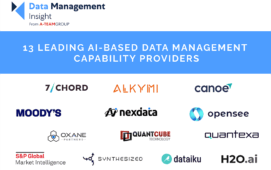According to Senate Banking Committee chairman Chris Dodd, the slow progress being demonstrated this week in the US with regards to agreeing the various amendments to the financial services bill could end up killing the reforms altogether. Not good news for those hoping for the establishment of an Office of Financial Research before the year is out, as it’s also one of the issues on Republican senator Richard Shelby’s hit list.
Shelby has been vocal in the past few weeks about the various sections of the bill that have inspired his criticism and he has duly managed to negotiate a barrage of amendments, following extensive discussions with Dodd. However, this slow process is set to include another week of wrangling, which Dodd fears may prove detrimental to the bill’s survival. He noted this week that there are only a few days left before the Senate is encouraged to move onto discussing other reforms; time is running out.
The proposal to establish a data utility in the form of the Office of Financial Research may therefore be left by the wayside in the rush to close the negotiations. Shelby has indicated that he feels it to be a waste of time, effort and money, as he reckons such a utility should not be provided by government for the benefit of Wall Street firms. The cost and complexity of establishing the new body is certainly going to be high; the government’s estimates of a half a billion dollars a year in upkeep may even be low.
Living wills legislation is also proving to be a bit of a minefield, but perhaps a more easily negotiated one, as most are in favour of some form of regulation in this space to ensure a failure the size of Lehman is conducted in a more orderly manner in future. The regulatory discussions have certainly done wonders for raising the topic of counterparty risk and entity identification within the board rooms of financial institutions across the globe. Firms are more aware than ever before of the many things that must be done at a firm-wide level in order to be able to better monitor, measure and report counterparty risk exposure.
To this end, next week I’ll be chairing a panel session in which Geert Berlanger, global director of data quality at Citi, and a number of other panellists from the vendor community will be discussing these counterparty risk and entity data challenges. We’ll be examining the potential impact of living wills legislation, the MiFID review and the development of Swift’s Bank Identifier Code (BIC) as a legal entity identifier on the space. Why has the ISO process failed thus far to achieve consensus on the issue of an international business entity identifier (IBEI) and how would the BIC initiative fare better?
Of course, we will also consider whether the market really wants regulators to step in and mandate counterparty data standards via the introduction of a utility model. What are the dangers of such a move? What are the alternatives?
Subscribe to our newsletter



